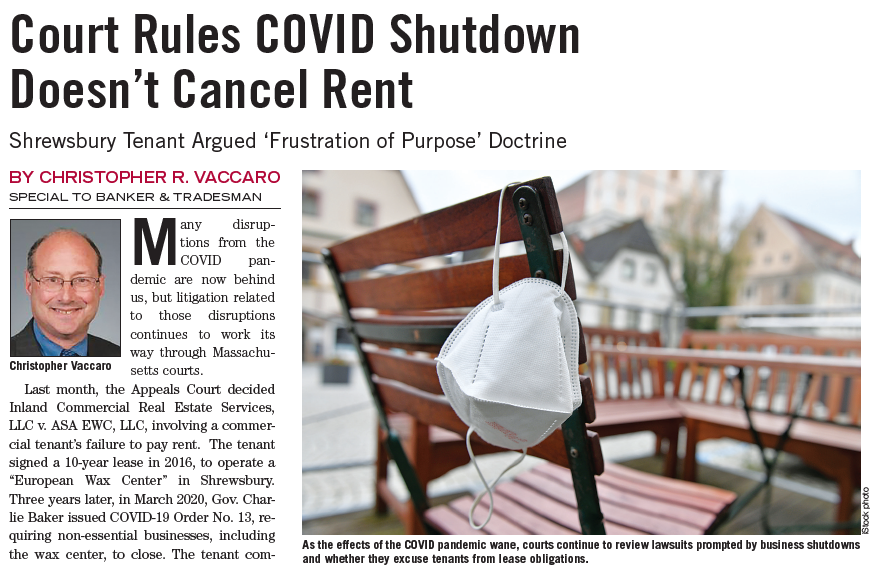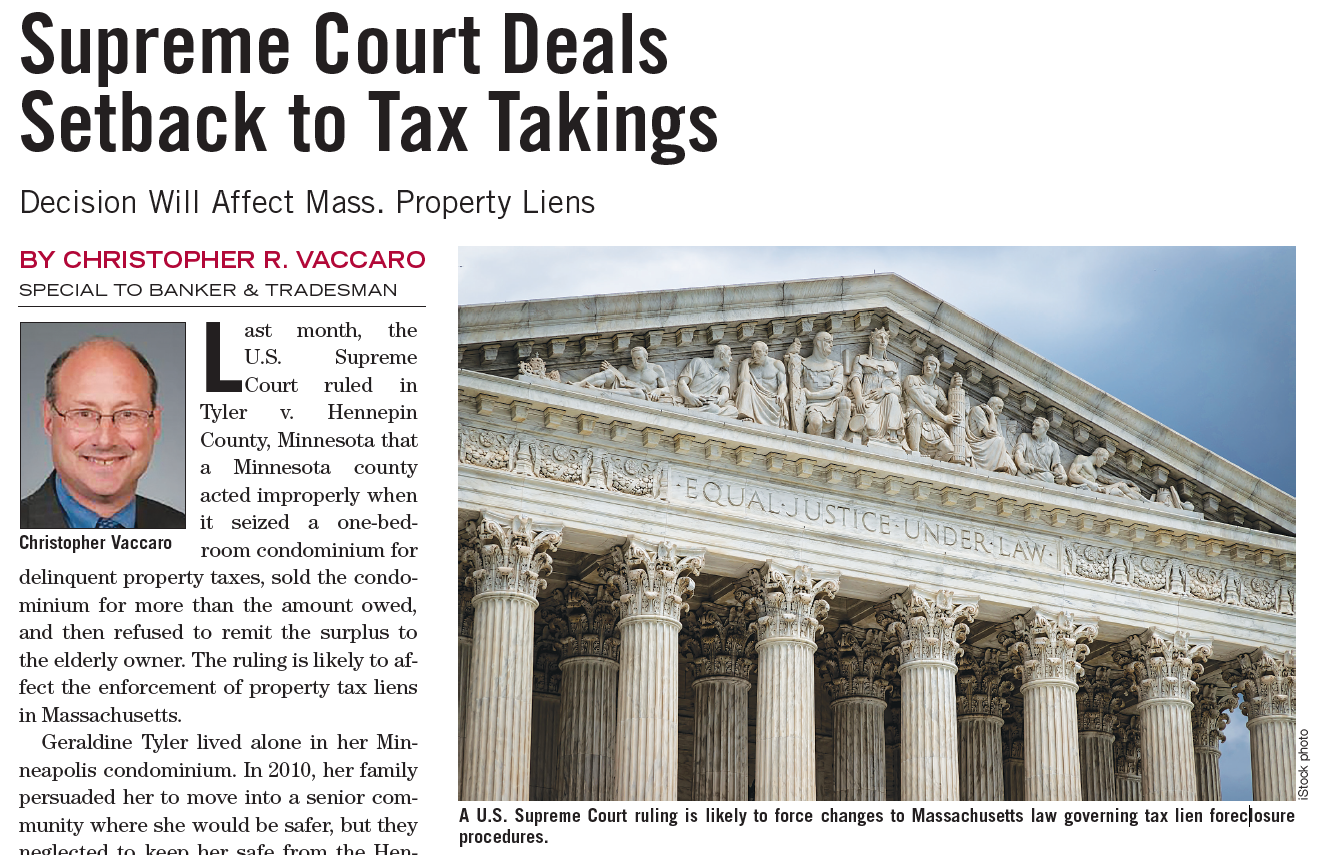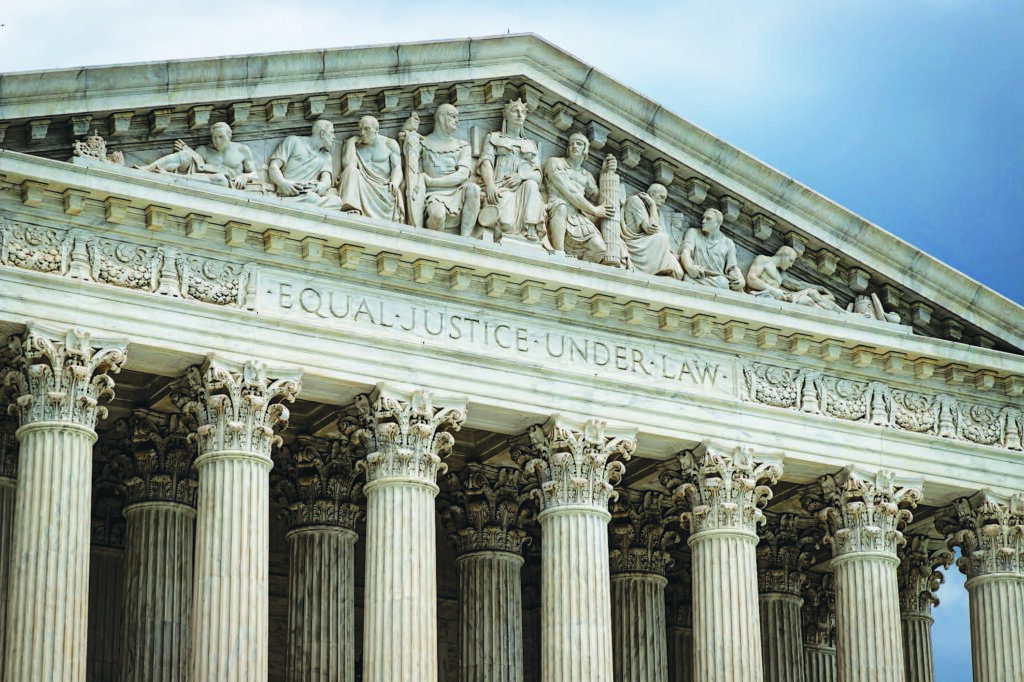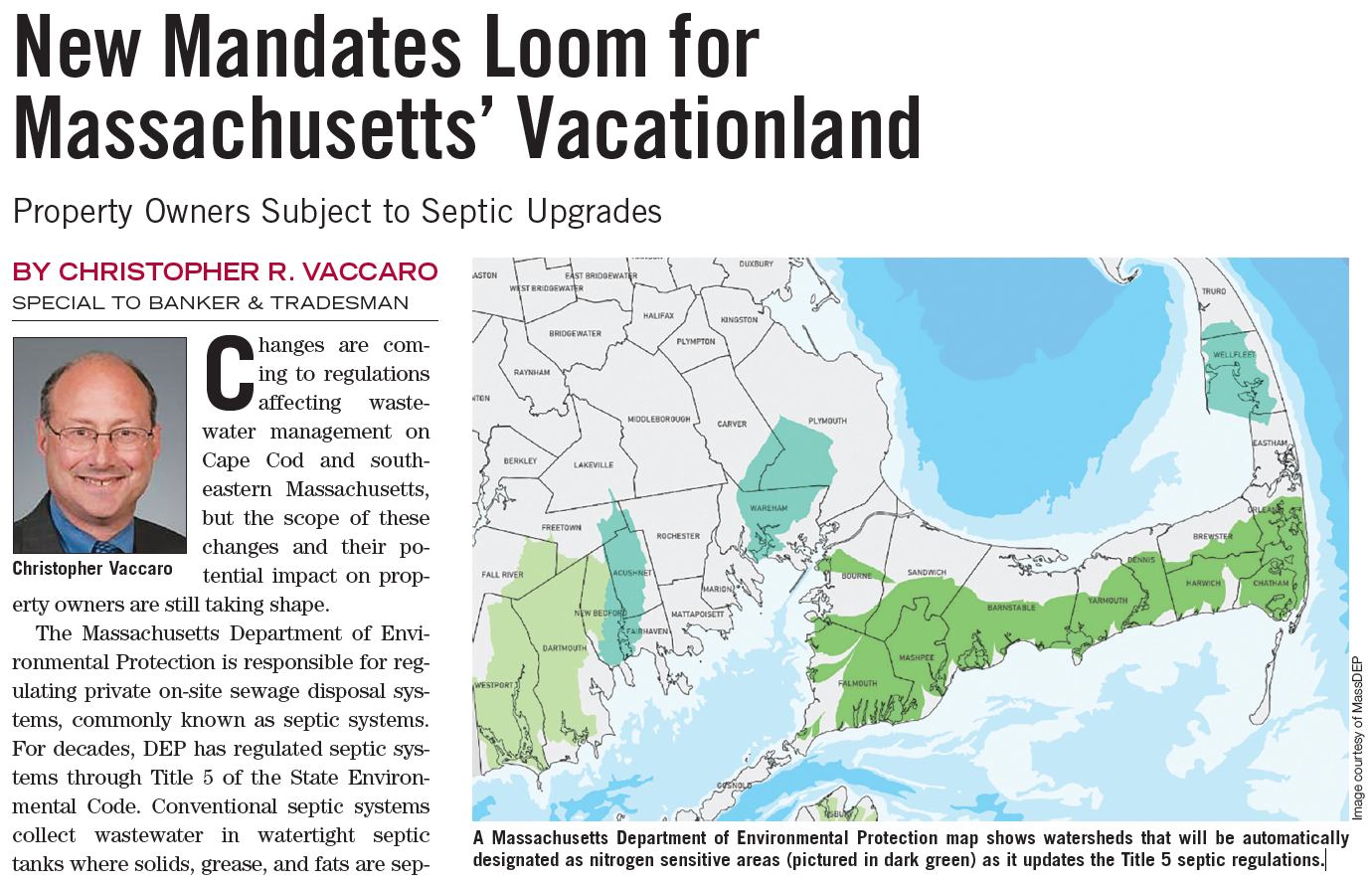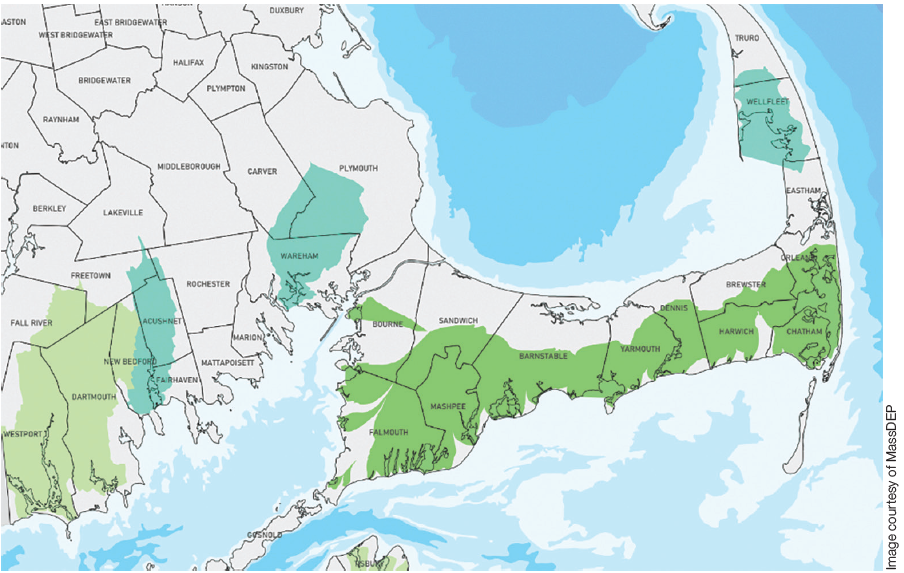 Shrewsbury Tenant Argued “Frustration of Purpose” Doctrine
Shrewsbury Tenant Argued “Frustration of Purpose” Doctrine
By Christopher R. Vaccaro
Special to Banker & Tradesman

Many disruptions from the COVID pandemic are now behind us, but litigation related to those disruptions continues to work its way through Massachusetts courts.
Last month, the Appeals Court decided Inland Commercial Real Estate Services, LLC v. ASA EWC, LLC, involving a commercial tenant’s failure to pay rent. The tenant signed a 10-year lease in 2016, to operate a “European Wax Center” in Shrewsbury. Three years later, in March 2020, Gov. Charlie Baker issued COVID-19 Order No. 13, requiring non-essential businesses, including the wax center, to close. The tenant complied with the order and did not reopen until July 2020, after the governor issued a new order ending the shutdown.
After the tenant failed to pay rent and water charges for March through September 2020, the landlord sent it a notice to quit, claiming over $55,000 in delinquent rent, some of which accrued during the three-month shutdown period. The tenant made a partial payment, but did not bring the rent current. The landlord terminated the lease and filed suit in superior court to evict the tenant.
In contesting the eviction, the tenant argued that it should not have to pay rent for the three-month period when the COVID shutdown order prohibited it from doing business. The tenant supported this argument with the often-invoked, but rarely successful, frustration of purpose doctrine.
The Supreme Judicial Court summarized the frustration of purpose doctrine in a 1991 decision, as follows: “Where, after a contract is made, a party’s principal purpose is substantially frustrated without his fault by the occurrence of an event the non-occurrence of which was a basic assumption on which the contract was made, his remaining duties to render performance are discharged, unless the language or the circumstances indicate the contrary.” When considering this defense, courts look at whether unforeseen circumstances effectively negated the value of the contract to the party who invoked the defense.
Unforeseen Circumstances Can Negate Contracts
In the case of the Shrewsbury wax center, the Superior Court judge rejected the tenant’s frustration of purpose defense, and entered judgment awarding the landlord possession of the leased premises and $86,841 in damages. The tenant appealed, and the Appeals Court offered a useful analysis of the doctrine, before affirming the Superior Court’s judgment.
The Appeals Court noted that the frustration of purpose doctrine excuses a party from performing its contractual obligations “where unanticipated supervening events require it.” For the doctrine to apply, the purpose that is frustrated must be so intrinsic to the reason for the contract, that the contract makes little sense without it. Courts are generally reluctant to apply the doctrine, preferring instead to preserve the certainty of contracts.
The Appeals Court also noted that most courts decline to apply the doctrine to temporary business closures caused by government shutdown orders. When evaluating frustration of purpose defenses in government shutdown cases, courts consider the duration of the forced closures, the length of the lease term, how far into the lease term the closure occurred, whether tenants could reopen after restrictions were lifted, whether tenants remained in possession of the premises during the shutdown and whether tenants could use their premises for purposes not barred by the shutdown order.
Temporary Shutdown Not a Dealbreaker
Taking these factors into account, the Appeals Court found the tenant’s frustration of purpose argument unpersuasive. It noted that the tenant did not show that its temporary closure substantially frustrated the purpose of the lease. The tenant was already three years into its lease when the shutdown occurred, the three-month shutdown was relatively short compared to the 10-year lease term, the tenant remained in possession of the premises during the shutdown and could sell goods from the premises, and the tenant was able to resume its business after the shutdown was lifted.
The Appeals Court also rejected the tenant’s argument that a temporary frustration of purpose should excuse the tenant from paying rent during the shutdown period. The court found that the doctrine provides relief to parties who see the anticipated benefits of their bargains destroyed by unforeseen events, not merely interrupted on a temporary basis.
The Appeals Court went on to state that even if the doctrine were available on a temporary basis, the tenant’s obligation to pay rent during the shutdown period would only be suspended, not discharged altogether. The court affirmed the Superior Court’s judgment.
This decision shows that the tenants who invoke the frustration of purpose doctrine to avoid rent payments will most likely be frustrated by unfavorable court rulings.
Download the article as seen in Banker & Tradesman on June 26, 2023. Learn more about Christopher R. Vaccaro.

